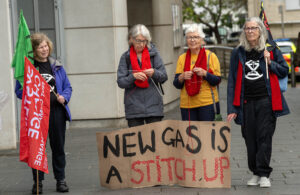New project to improve the design and performance of nuclear power plants
Business Secretary Kwasi Kwarteng has announced a new £7.6m collaboration to improve the design and performance of nuclear power plants.
Researchers at the University of Bristol, Manchester and Imperial College London will work with EDF to assess the condition of nuclear power stations.
The project will focus on developing the key components needed for digital twins that can be used to assess the condition of components of energy generators such as nuclear power plants, and their need for maintenance or remedial work.
This partnership, which includes working with nuclear industry supply chain organisations, will aim to develop the digital tools needed to simulate the behaviour of materials from their first use to the end of their life.
The funding is being delivered through the Engineering and Physical Sciences Research Council (EPSRC), part of UK Research and Innovation, and is part of the flagship Prosperity Partnerships programme. It builds on the Government’s commitment to raise economy-wide investment in research and development to 2.4% by 2027.
Dr Ionel Nistor, head of nuclear R&D at EDF, said: ‘EDF is looking forward to starting work with our academic and industrial partners on this project which brings together a unique combination of expertise.
‘We will develop digital tools to help the UK nuclear sector and other industries to reduce costs and ensure safety when designing, building and operating strategic assets.’
Professor David Knowles, a principal academic investigator for the partnership and CEO of the Henry Royce Institute, added: ‘This project brings together materials behaviour, manufacturing modelling and data science expertise to really drive a step-change in digital innovation in materials science, supporting the nuclear industry now and in the future.
‘This research is central to the enhancement of our understanding of material behaviour which will help us attain the Government’s target of reducing the cost of new nuclear by 30% by 2030, ensuring the delivery of reliable, low-carbon energy.’
Photo Credit – Pixabay















